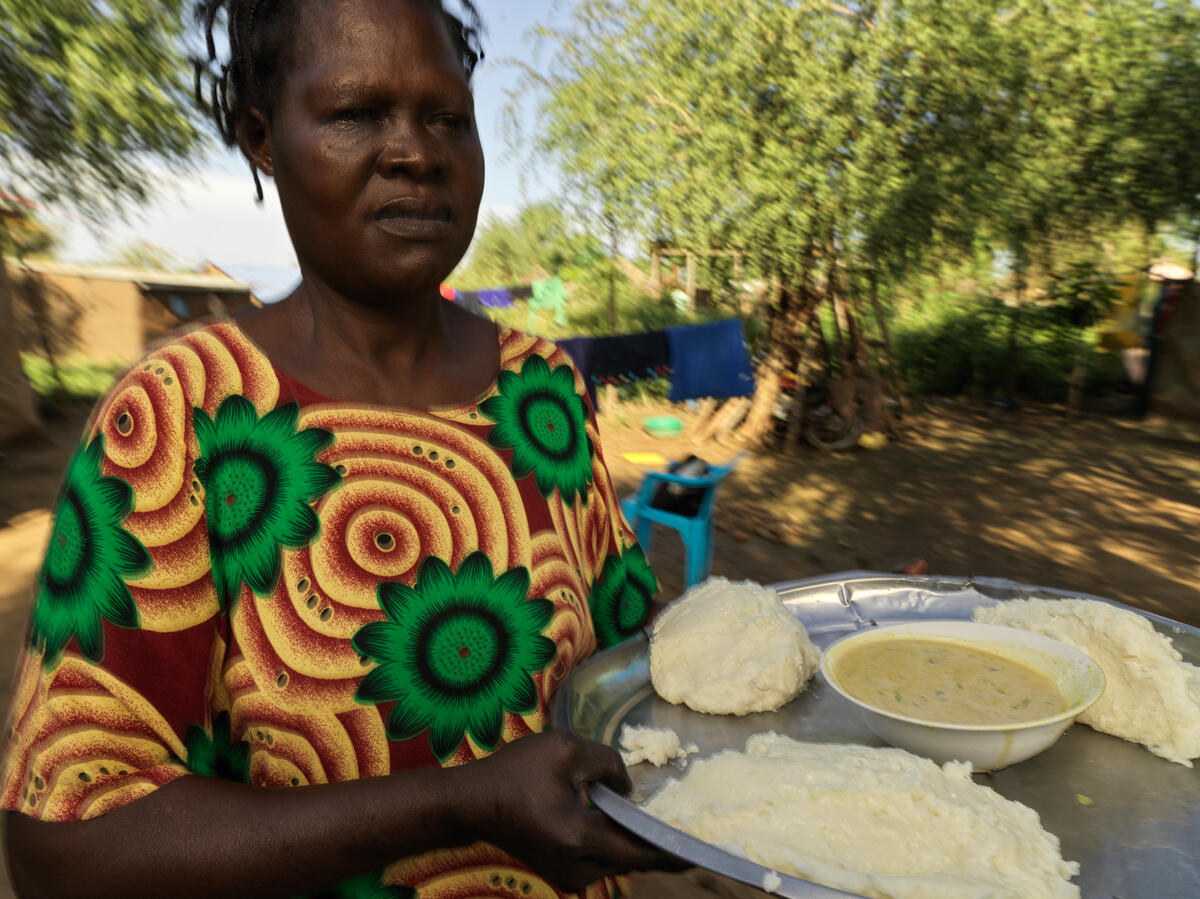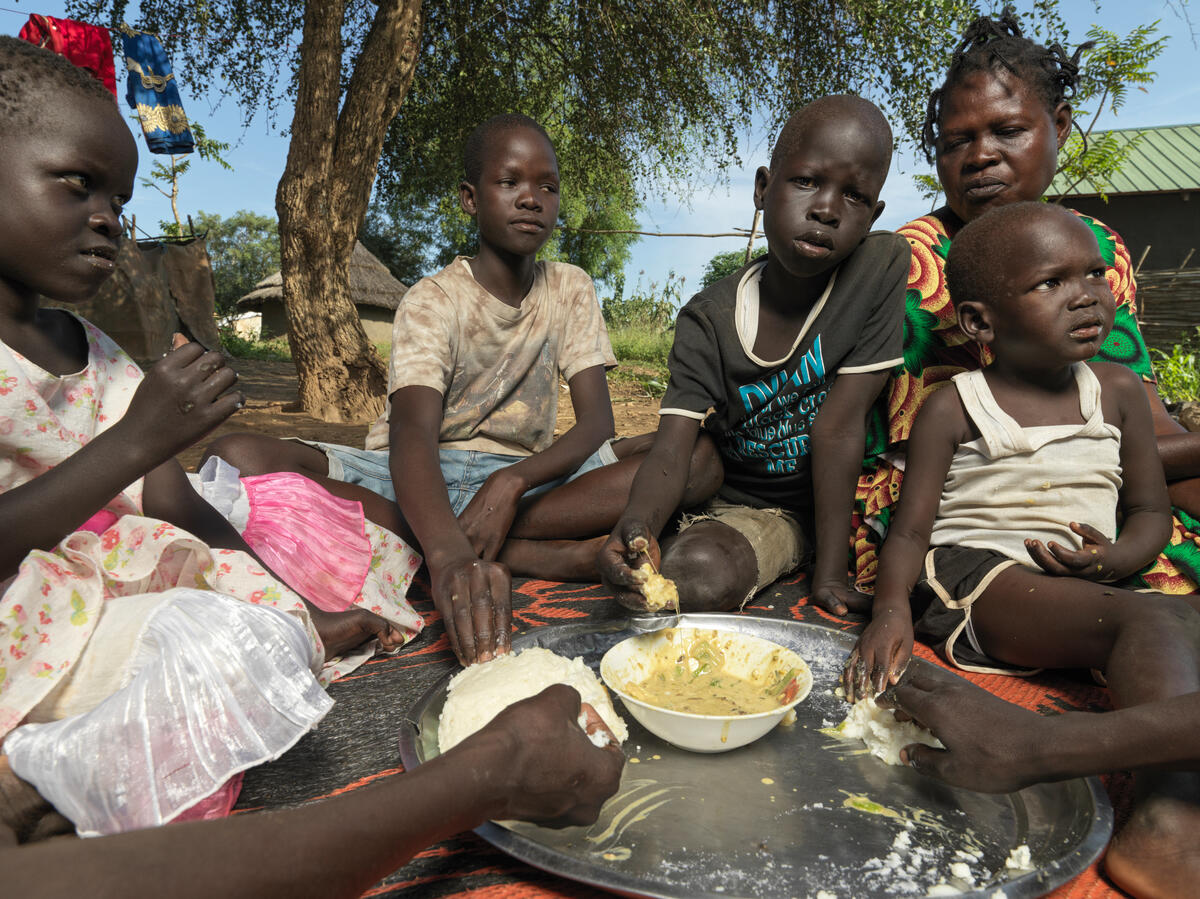Mandela's Journey: From Childhood Memories to Facing Hunger

When he was little, Mandela used to join his mother to collect firewood in a place far away from his home. To him, it seems like he had to walk for hours to reach this distant place, but his mother, Semira, says it wasn’t too far from where they stay nowadays.
“We’d go together when I collected the firewood. Then he sat beside the firewood with me in the market,” recalls Semira. “We used to farm groundnuts in the bush and the yield was good. We used to get three sacks and it was enough for us. We also farmed okra…some we took to the market to sell and some for home. That’s how good it was.”
“There was no hunger back then,” says Mandela in a quivering but confident voice. “But now there is more hunger.”

Semira used to live in a village with her family and relatives. Life was peaceful and good until it wasn’t. The violence of some cattle raiders spread across the area and the results traumatized Semira forever.
“These people are the ones that move around with their cattle and they attack people, if they catch you they can rape you. If you can’t run fast they can rape you in the bush,” says Semira whose aunt, Mary, was killed by these raiders.
Semira never again felt safe in her village and decided to move to Juba city with her family. Here, without a job and an income, she’d walk to the fields to collect firewood to sell in the market. But the conflict spread even to these peripheries of the city.
“Three years ago we were there with a large group but those people armed with machetes came and chased us away. We ran for our lives as I remembered what had happened to my aunt…I told my children and [they] didn’t want us to go there anymore…since they told me not to go to the bush I’m now working washing dishes in a restaurant, but today I wasn’t feeling well so I took a day off and didn’t go.”
During that period with no farm, no income from selling firewood, and no job the family struggled direly.
World Vision supports families who had to start a new life after being displaced due to conflict. A kitchen garden was implemented next to Semira and Mandela’s home and the family can harvest vegetables to eat at home but also to sell.
“Life would be very difficult if World Vision didn’t come. Due to their help with seeds life has somehow improved,” says Semira. But little Mandela adds, “where we used to farm the land was bigger and there was more food, and less hunger compared to this place supported by World Vision which is smaller. Food isn’t enough and there’s more hunger.”

Mandela misses those days when he didn’t feel hungry and could eat a variety of food. “Back then we used to eat plenty of food: spider weed, amaranthas, plenty of mangoes, fish, but now we don’t have that food anymore,” he explains.
Conflict uproots children from the home and lives that they’re used to and loved. Mandela’s frustration is a reflection of how adapting to a new life isn’t easy for a child, just because they’re young.
Nowadays, Semira is renting a two-bedroom house for the family, but she can’t manage to pay the rent and afford food. Today, she stayed at home to rest from her constant stress. Seeing his mother like this Mandela adds, “I feel a lot of pain in my heart that my mom is stressed…When I grow up I want to help my mom.”